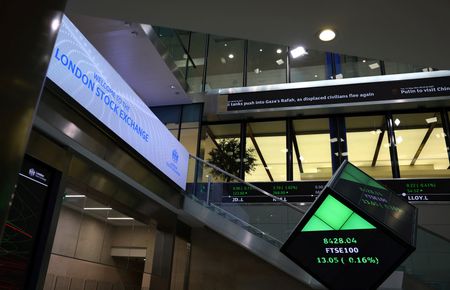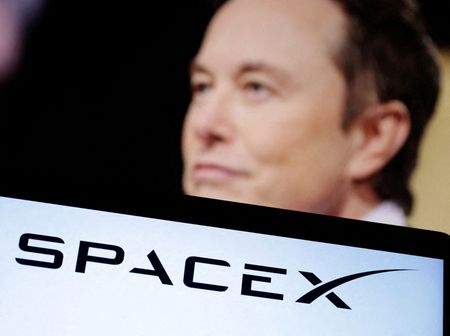LONDON (Reuters) – British consumer spending grew only modestly last month as uncertainty in the run-up to finance minister Rachel Reeves’ Oct. 30 budget and rising energy bills deterred shoppers, a survey showed on Tuesday.
The British Retail Consortium said spending in shops increased by 0.6% in annual terms in October, below September’s 2.0% growth and the weakest rise since July.
Separate data from Barclays also showed softer growth in consumer spending in October.
“Speculation about the impact of the budget, a holding back of demand until Black Friday promotions and a later half-term break all impacted retail sales data,” said Linda Ellett, UK head of consumer, retail & leisure at accountants KPMG who sponsor the BRC’s data.
“With clarity now provided by the budget and many households escaping paying increased tax from their wages, retailers will be hoping for an upturn in consumer confidence and spending.”
The brunt of the tax hikes announced last week by Reeves fell mostly on businesses.
However, consumers were hit by a 10% increase in a regulated price cap on household energy last month.
In its report, Barclays said spending on debit and credit cards rose 0.7% in annual terms in October, also the slowest since July and down from September’s 1.2% increase.
Spending on essential items fell 2.2%, the biggest drop since April 2020, led by spending in supermarkets. But spending on non-essential items increased 2.1%, driven mostly by ticket sales for upcoming concerts by performers such as Coldplay.
Barclays said a survey it conducted showed consumers’ worries about food inflation eased while households felt more confident about their prospects for discretionary spending.
“With price pressures continuing to ease and tentative signs that consumer confidence is improving once again, following what appears to have been a post-election dip, we think that the stage is set for real spend growth,” Jack Meaning, chief UK economist at Barclays, said.
The Bank of England is widely expected to cut borrowing costs for only the second time since 2020 on Thursday as inflation pressures fall back further.
($1 = 0.7711 pounds)
(Reporting by Suban Abdulla; Editing by William Schomberg)











